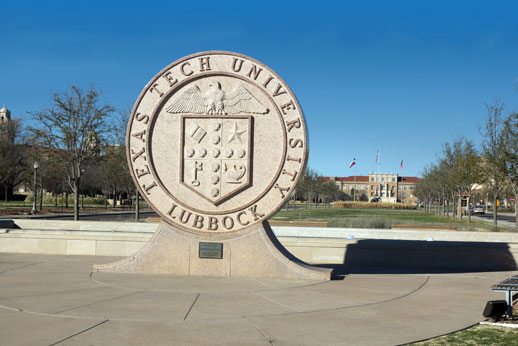>>Over the last 40 years, Texas Tech has gained popularity, and competition among law school applicants has increased. Last year more than 1,550 students applied to fill one of 244 openings. The average GPA of accepted students is 3.53, and the average LSAT score is about 155.

The school of law has 33 full-time professors in addition to adjunct and visiting professors. The faculty includes graduates from top law schools like Columbia, Harvard University, Yale University, Virginia University, Georgetown University, New York University, and Stanford University.
With a student-faculty ratio of about 1:20, students have the opportunity to develop personal relationships with their professors. Faculty members adhere to an "open-door" policy and encourage students to meet with instructors as needed beyond classroom hours. From orientation to graduation, the faculty is available to help students reach their full potential.
The school recently received national recognition for its academic program. Two Texas Tech School of Law programs were ranked among the best in the nation for 2007 in the April issue of U.S. News & World Report. The trial advocacy program was ranked 14th in the nation, and the legal writing program was ranked 23rd. Both programs are designed to teach students skills with hands-on experience. Students interview mock clients, practice negotiating, and draft a trial and/or appellate brief, just as lawyers do in real-life practice.
Students interested in international law can participate in the school's study abroad program. Students who participate will learn how to apply U.S. laws in foreign countries, and they will gain an understanding of international laws and institutions. International programs are available in Mexico, Spain, and France.
"It is a tremendous achievement to attain the highest score on the Texas Bar Exam, and we are extraordinarily proud of Brandon and the faculty who prepared him," said Walter B. Huffman, dean of the school of law.
Since Texas Tech is the only major university, law school, and medical school combined in the state, unique joint degrees are offered in the fields of business and life sciences. Students can choose from a Master's of Business Administration (M.B.A.), Master's of Public Administration (M.P.A.), or a Master's of Science in Agricultural and Applied Economics, Accounting-Taxation, Personal Financial Planning, Biotechnology, Crop Science, Horticulture, Soil Science (or Entomology), or Environmental Toxicology. Students must meet the admission requirements for both the law school and graduate school to enroll in a joint degree program.
The legal job market is extremely competitive, but statistics show that most Texas Tech graduates have no trouble landing a job. More than 98 percent of the most recent graduates were able to find a job in just a few months, and the average starting salary was about $70,200. Students most frequently accept positions with employers like Jones Day Reavis & Pogue, Thompson & Knight, Haynes and Boone, Thompson, Coe, Cousins & Irons, Strasburger & Price, and Cooper & Aldous.
The school's Career Services Center coordinates a mentoring program with alumni. The Tech Connect Mentor Program is an email directory for alumni who wish to offer insight into their careers, geographical regions, or job prospects for their areas. Alumni who participate answer students' questions and offer job search advice via email.
Texas Tech was approved by the American Bar Association in 1970. In 1968, the school was accredited by the Supreme Court of Texas; and in 1969, the school was accredited by the Association of American Law Schools. In 1974, the Law School was elected to The Order of the Coif, which is the only national legal honor society in the United States. One-third of the nation's law schools are invited to join the society.



